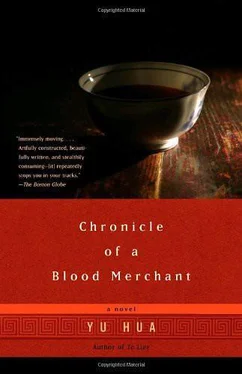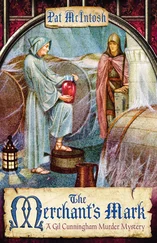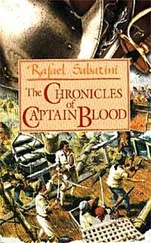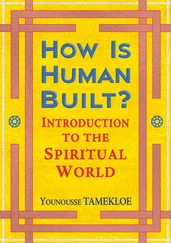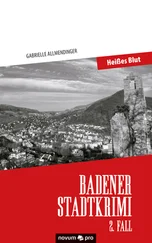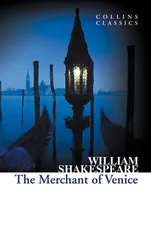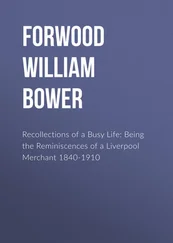What this account missed, however, was Yu Hua’s deep affinity for the work of another Chinese master, Lu Xun, whose fiction and impassioned political advocacy had helped launch the epochal May 4th Movement for literary and cultural revolution in 1919. Widely acknowledged as the “father of modern Chinese literature” for his groundbreaking importation and appropriation of Western literary forms, Lu Xun’s unique brand of realist short fiction was inflected by the language and procedures he had learned as a failed medical student in Japan around the turn of the century. Medicine, he later wrote, could heal only bodies. It was the task of literature to minister to their sick minds. Eager to eviscerate what he saw as the deep-seated flaws of the Chinese national character (flaws that seemed by the 1920s to have resulted in China’s subjection to aggressive imperial powers such as England, Germany, France, the United States, and Japan), Lu Xun wielded his pen like a scalpel, cuttingly remarking on the cultural follies and moral failings of his fellow Chinese. What made Lu Xun a great writer, however, was not only his tremendous linguistic invention and uncompromising social conscience, but also the way he fretted about his inability as a member of the educated elite to truly reach or represent the masses. Relentlessly self-critical, he took pride in his willingness to turn his scalpel inward, to dissect his own failings even more unsentimentally than he did his “patients” and their pathologies.
The extent to which Yu Hua poked mordantly ironic fun at Lu Xun in his early fiction — one character in his “One Kind of Reality” is quite literally dissected by a wisecracking team of organ harvesting doctors after having been executed for murder— should not obscure their underlying affinities. At the most superficial level, they both grew up in and write almost exclusively about small-town life in Zhejiang province, near Shanghai. As a teenager in Haiyan, Yu Hua was so enamored with the ambiance of Lu Xun’s first masterpiece of short fiction, “Diary of a Madman” (in which traditional Confucian culture is ingeniously represented by a cannibalistic cabal plotting the demise of an enlightened, or perhaps merely paranoid, narrator), that he set it to music, with each Chinese character of the original text being assigned a random musical pitch. (Yu Hua still likes to say that it is quite possibly the longest and most impossible song ever written.) Like Lu Xun, Yu Hua returns obsessively to the violent spectacles of China’s tumultuous modern history. As in Lu Xun’s fiction, the incalculable sufferings of poverty, war, and revolution come to life for the reader in Yu Hua’s fiction as a sort of “theater of cruelty” visited upon the bodies of his characters. And as with Lu Xun, it is the operating theater and the hospital that more often than not serve as a symbolic site of cruelty, official ineptitude, and state malpractice. This is certainly true of To Live —the 1992 novel that catapulted Yu Hua to national fame, prompting a successful film adaptation by the internationally renowned director Zhang Yimou. The climax of that story— which relates the epic transformations of modern Chinese history through the eyes of a ne’er-do-well gambler called Fugui and his family — wrenchingly relates the entirely preventable death by bleeding of a pregnant woman in a hospital at the height of the Cultural Revolution.
While the sheer absurdity and cruelty of the vicissitudes Fugui and his family so resiliently suffer throughout the novel are reminiscent of Yu Hua’s early work, To Live represented a decisive turn away from avant-garde writing toward a more pointedly populist style. By 1992, the vogue for challenging, intellectually serious fiction had begun to cool, and China’s headlong push for wholesale marketization had begun to transform the way people thought about and, more importantly, bought and sold their culture. Ironically, the avant-garde of which Yu Hua had been such a prominent part, fell victim not so much to state repression as to the vagaries of the emergent capitalist marketplace. Literary journals and publishing houses, which had been subsidized by the authorities, were now forced to fend for themselves. Television dramas, Hong Kong and Taiwanese pop music, Hollywood blockbusters, and entertainment fiction rapidly came to dominate urban cultural markets. The intricately constructed narrative labyrinths and earnest cultural critique of the pre- and immediately post-Tiananmen years suddenly seemed hopelessly old-fashioned at best and willfully elitist at worst. The era of mass culture had arrived with a vengeance. Perhaps the best anecdotal emblem of this cultural sea change was the appearance in 1996 of a soapy six-part television miniseries of dubious artistic merit called China Models. Each episode, it turned out, had been ghostwritten by a critically acclaimed proponent of highbrow literary writing in China, including one segment penned by Yu Hua himself.
It would be too simplistic, however, to argue that a book like To Live was merely a capitulation to mass culture. For not unlike Lu Xun before him, Yu Hua has willingly become what we would now refer to as a public intellectual. He writes serious essays on literature, Western classical music, and the visual arts for the popular press. He has been active in producing musicals on Beijing’s vibrant drama scene. He frequently weighs in on issues of public concern on television and via the Internet. Since To Live, his fiction has gravitated toward gripping stories of ordinary men and women living through extraordinary travails. And in experimenting with and finally adopting a reconstructed realist style — one characterized by its stripped-down, almost cinematic brevity, earthy humor, and raw emotional appeal — he has also made a conscious decision to narrow the gulf between elite intellectuals and their audience, a gulf that Lu Xun self-consciously despaired of ever being able to overcome.
All of these tendencies come together in the Chronicle of a Blood Merchant, Yu Hua’s most successful novel to date, first published as The Chronicle of Xu Sanguan’s Blood Selling (Xu Sanguan mai xue ji) in 1995. The novel’s deceptively simple scenario takes for its inspiration a subculture, born of rural poverty and a network of blood plasma collection stations in public hospitals, which has existed for more than thirty years in the Chinese countryside, engendering its own protocols, ritual codes of conduct, and belief systems. The disturbing revelations of official corruption and mismanagement within this system, as well as the widespread contamination of blood reserves with the HIV virus, came to light only several years after Yu Hua’s novel was published. Yu Hua’s novel, in this sense, seems eerily prescient. That many rural communities, especially in the drought-stricken central province of Henan, have come to subsist almost entirely on their “blood money” is chilling enough. And the appalling fact that these “blood villages” have also become “AIDS villages”—in which it is conservatively estimated that tens and perhaps hundreds of thousands of peasants have contracted HIV through selling their own blood — cannot help but shadow our reading of Xu Sanguan’s distinctly unhygienic encounters with bumbling “blood chiefs” and venal medical officials.
But Yu Hua’s account of the prehistory of this public health holocaust is neither journalistic nor strictly ethnographic. And although Yu Hua faithfully chronicles Xu Sanguan’s life from the early days of socialism in the 1950s, to the disastrously ambitious economic collectivization of the Great Leap Forward in 1958 and the three years of famine that resulted, followed by the factional violence of the Cultural Revolution (1966–76) and the relative prosperity of the post-Mao years, the novel isn’t necessarily, or exclusively, historical in its focus. There’s more than a whiff of the morality play here, for starters. Attentive as always to the musical aspects of his material, Yu Hua has staged his story as the sort of traditional Chinese opera that townsfolk like Xu Sanguan and his country cousins would heartily enjoy. Performances take place in an impromptu manner, in the street or at market or in the midst of a temple fair. Props are minimal, settings suggested in a few broad brushstrokes. Characters, playing more or less to type, appear onstage, explaining themselves directly to the audience and each other in soliloquy. Public life arranges itself into a series of dramatic gestures and emotionally charged tableaux; private life is virtually an impossibility, carried out against the backdrop of a disapproving crowd through furtive kindness or tender mercy, as when Xu Sanguan secretly brings his wife a morsel of meat as she stands in ritual humiliation on a busy street corner. The language of the original, finally, has the plain-speaking concision, bawdy humor, and sharp cadence of street opera, and Yu Hua’s themes — sustenance, suffering, blood money, blood ties, and bonds bought and paid in blood — are nothing if not elemental and operatic.
Читать дальше
